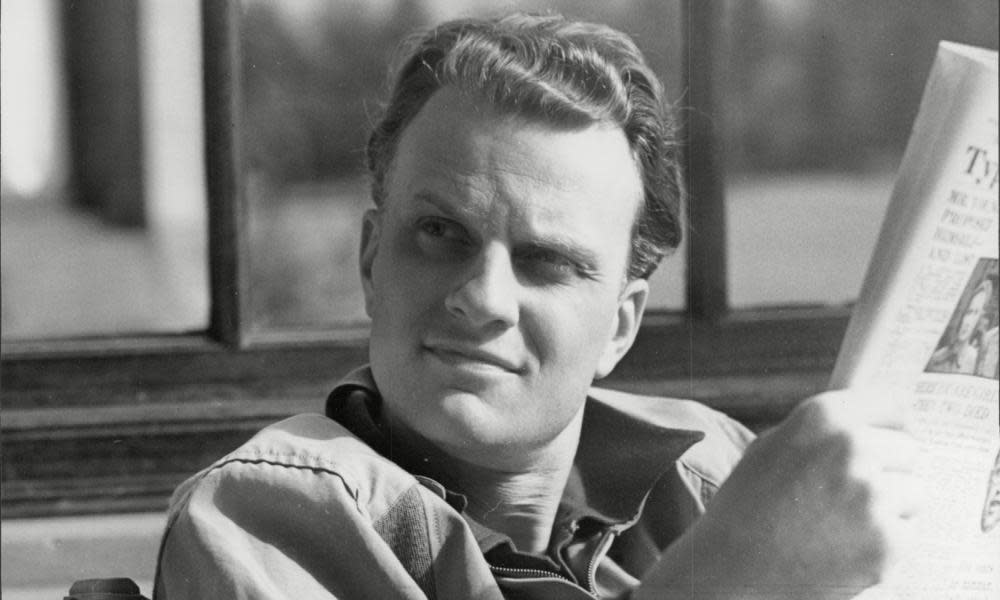Who in Scotland will now defend the virtues of religious observance?

The death of Billy Graham last week drew a curious response from BBC Scotland, which seemed keen to disparage the legacy of the great Christian evangelist.
The national broadcaster turned to its former head of religious broadcasting, the Rev Johnston McKay, to provide some analysis and perspective on the life and times of Graham. Sadly, there was neither. Instead, McKay gave vent to what seemed to me a long-held resentment at Graham based on personal animosity seasoned with just a bat squeak of envy.
I was raised in an Irish-Catholic household in Glasgow in the 1960s and 1970s and Graham’s name was perhaps not as commonly invoked as others such as the pope, Mother Teresa and Jock Stein, but he was accorded a degree of respect nonetheless. My dad and many of his Catholic contemporaries respected and admired Graham for the simplicity of his message and the way it resonated across many of the borders separating one Christian faith from another. They were political men, mainly from a Labour and trade union background, and could appreciate the common humanity that underpinned his message. Some of them even attended Graham’s great rally at Glasgow’s Kelvin Hall in 1955, where he preached to 15,000 people. What’s more, he was a Democrat who had been steadfastly opposed to racial discrimination and segregation.
My dad could appreciate the common humanity that underpinned Billy Graham’s message
Strict adherence to Catholicism can leave you with a feeling of disorientation. There is so much embroidery, invocation and ritual that you sometimes find yourself yearning for a dose of Presbyterian, heid-down, no-nonsense tub-thumping. Graham had a simple message to convey and felt that a world torn apart by global armed conflict and seeking comfort in shallow, mass consumerism needed to hear it. He would leave the philosophising and the handwringing and the minutiae of theological discourse to others and cut to the chase. The world needed to come back to God through His son, Jesus Christ: pure and simple. Tens of millions of people across the world duly did so. In Scotland, it has been reckoned that Graham’s visit helped push membership of the Church of Scotland to about 1.2 million people and, though the Catholic church will never admit this, it received a spin-off too.
BBC Scotland’s decision to denigrate Graham was not really surprising and probably reflected a wider attitude among the Scottish political and media elite to anything that hints at authentic Christian conviction. The 19th-century French philosopher Frédéric Bastiat concluded, somewhat cynically, that “the state is that great fiction by which everyone tries to live at the expense of everyone else”. In modern Scotland, successive governments have tried to rebuke this concept. They want everyone to live, not at everyone else’s expense, but in their service. And those whose social circumstances leave them needing more help than the average should receive it.
This also extends to people’s personal beliefs and their acceptance of who they are. This lies at the heart of recent legislation on equality and gender. It’s also why Scotland would like the opportunity to embrace refugees and not turn them away. Yet there is a creeping perception that buried deep beneath the soil of this Garden of Eden something ugly lurks. At the 2011 census, 53.8% of the Scottish population defined themselves broadly as Christian, of which several hundred thousand still attend church services regularly.
Increasingly, though, to adhere to the traditional beliefs and teachings of the main Christian churches is to invite ridicule and the threat of criminal proceedings. If you believe that the rights of the foetus are at least as equal as its mother’s then you are howled down as anti-women. If you believe that full conjugal marriage, open to the possibility of having children, can only occur between a man and a woman, then you are condemned as being anti-gay.
In Scotland, espousing anti-gay sentiments is regarded as a hate crime (as it ought to be), so the potential consequences of a priest or minister refusing to conduct a gay wedding according to his or her religious convictions are serious.
The Scottish state (in which we are all supposedly equal) spent a fortune in the courts to end the careers of two highly skilled and experienced Catholic midwives who wanted to opt out of participating in abortion procedures according to their conscience. They felt (wrongly as it turned out) that their job was to assist in bringing babies into the world. Recent utterances by assorted SNP politicians have hinted at something more sinister. Mhairi Black, darling of the Scottish Nationalists, used the term “plastic Irishmen” to dismiss people who criticised her over an earlier (though mild) indiscretion. Her colleague Roseanna Cunningham talked about people making the sign of the cross “in an aggressive manner”. Perhaps they were wearing scary clown masks. Tommy Sheppard, one of the most respected Westminster MPs, attended a Humanist Society fringe gathering at last year’s SNP conference where he called on people to “chip away” at the “power of organised religion” within Scotland’s school system. Let’s see: I wonder who he was thinking of there then?
On 3 March, Nicola Sturgeon will deliver the annual Cardinal Winning lecture in Glasgow, where she is expected to talk about the legacy of Catholic schools in Scotland since they were established 100 years ago. It will be an opportunity for the first minister, who is highly regarded among Scotland’s Irish-Catholic community, to transmit an important message: that in a modern, diverse nation of many cultures, Christian belief is held to be as equal and as worthy of respect as all the others.
• Kevin McKenna is an Observer columnist

 Yahoo News
Yahoo News 
